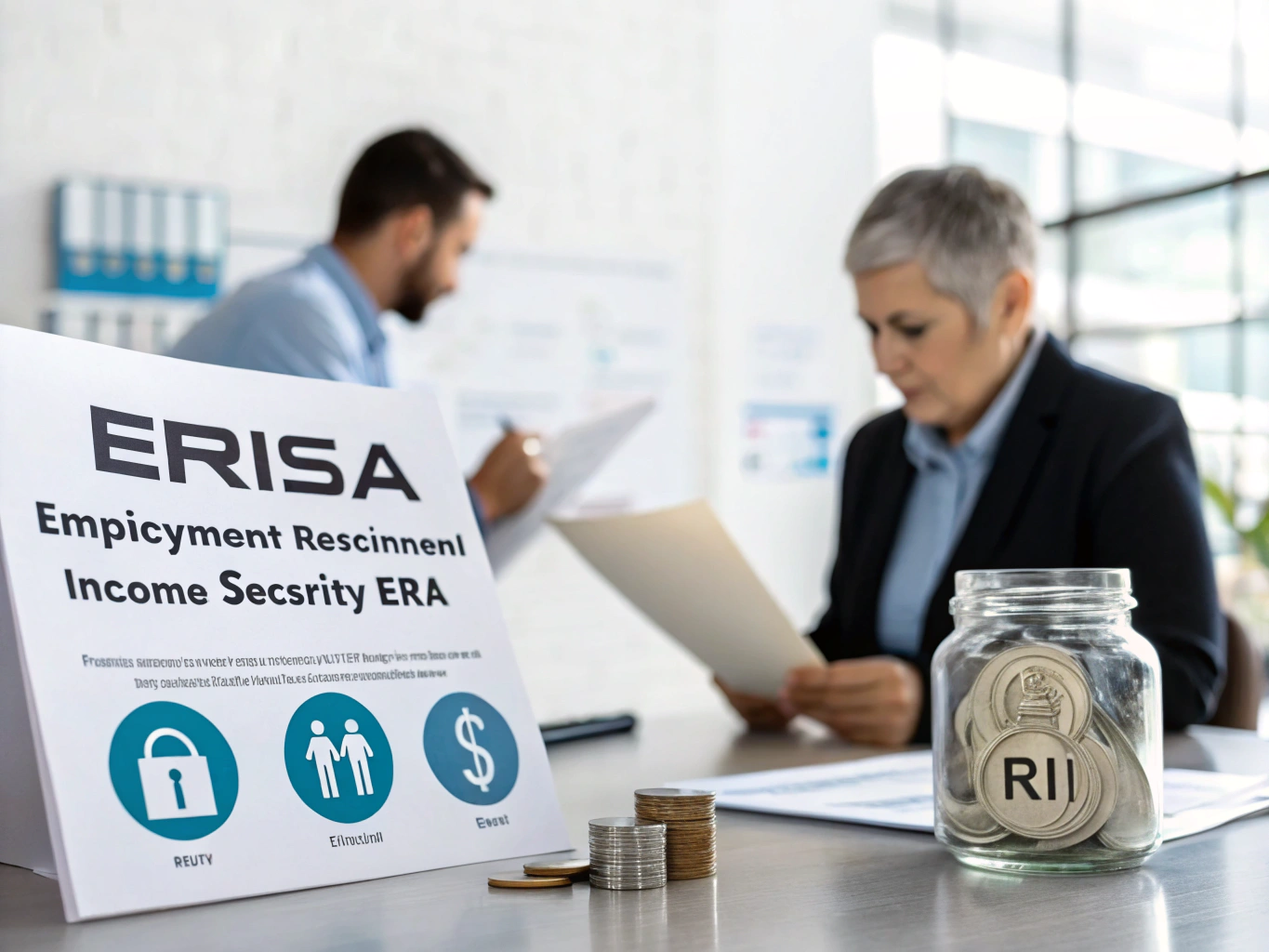Definition
The Employment Retirement Income Security Act (ERISA) is a federal law passed in 1974 designed to safeguard the retirement and welfare benefits of employees. It establishes minimum standards for private-sector employee benefit plans, ensuring that both employers and employees understand their rights and responsibilities. Simply put, ERISA helps ensure that your retirement savings are protected and managed properly, giving you peace of mind as you plan for your future.
Key Components
Understanding ERISA involves diving into its key components, which lay the groundwork for how employer-sponsored retirement plans function. Here are some important aspects you should be aware of:
- Fiduciary Responsibilities: At the heart of ERISA is the principle that those who manage benefit plans (fiduciaries) must act in the best interest of participants. This means making prudent investment choices and providing accurate information. For example, if you’re a plan manager, you must ensure that you’re not only choosing investments that align with the plan’s goals but also keeping participants informed about their options.
- Reporting and Disclosure: ERISA mandates that employers disclose critical information about their benefit plans. This includes providing a Summary Plan Description (SPD) that outlines what benefits are available, eligibility criteria, and how to file claims. Regular updates, like annual reports, keep participants informed about any changes, ensuring transparency.
- Vesting and Participation: ERISA gives guidelines on how employees earn rights to their employer’s contributions to retirement plans. Vesting schedules dictate when you fully own employer contributions, which means that after a certain period, you can take your entire benefit with you if you leave the company. For instance, a company might have a five-year vesting schedule, meaning you earn 100% of their contributions after five years of service.
- Benefit Security: To protect your benefits, ERISA requires that plans establish trust funds, keeping your retirement assets separate from the employer’s assets. This is crucial; it ensures that your funds are safeguarded for your retirement and not used to cover company debts.
- Claims and Appeals Process: If you believe your benefits have been unfairly denied, ERISA gives you the right to appeal. This process helps ensure that your claims are reviewed fairly, giving you a chance to contest decisions made about your benefits.
Importance in the Workplace
Understanding ERISA is vital in any workplace, especially for HR professionals and employees alike. It not only protects your retirement savings but also fosters trust between employees and employers. Imagine you’re an employee contemplating whether to stay with your current employer. Knowing that ERISA is there to safeguard your retirement benefits can influence your decision to stay longer. On the flip side, as an HR manager, having a solid grasp of ERISA ensures that your organization remains compliant, avoiding potential legal troubles while enhancing employee satisfaction.
Best Practices
Implementing ERISA effectively in the workplace requires proactive strategies. Here are some best practices to consider:
- Educate Employees: Regularly conduct informational sessions or distribute materials that explain ERISA and its impact on retirement benefits. Helping employees understand their rights can empower them to make informed decisions about their retirement plans.
- Maintain Clear Documentation: Keep all plan documents, SPDs, and any amendments readily accessible. This transparency builds trust and ensures that employees can easily find the information they need.
- Regularly Review Plan Compliance: Schedule periodic reviews of your benefit plans to ensure they comply with ERISA regulations. This includes checking on fiduciary responsibilities and ensuring that all disclosure requirements are being met.
- Implement a Robust Claims Process: Have a clear and fair process in place for handling claims and appeals. Ensure that employees know how to file a claim and what to expect during the process, so they feel supported and informed.
- Seek Professional Guidance: Consider consulting with ERISA experts or legal counsel to navigate complex regulations. This can help ensure that your organization is compliant and that employees’ rights are safeguarded.
Legal Considerations
ERISA is nuanced, and understanding its legal implications is crucial for both employees and employers. For instance, if a company fails to comply with ERISA, it could face legal action from employees, including lawsuits for denied benefits. Moreover, violations can lead to hefty fines and legal costs, making it imperative for employers to stay informed and compliant with ERISA regulations.
Conclusion
In summary, grasping the details of the Employment Retirement Income Security Act is essential for anyone involved in managing or participating in employee benefit plans. It not only protects your hard-earned savings but also contributes to a more transparent and trustworthy workplace. By understanding ERISA, you can make informed decisions about your retirement and ensure that your organization maintains compliance, ultimately fostering a positive work environment where employees feel valued and secure in their future.




